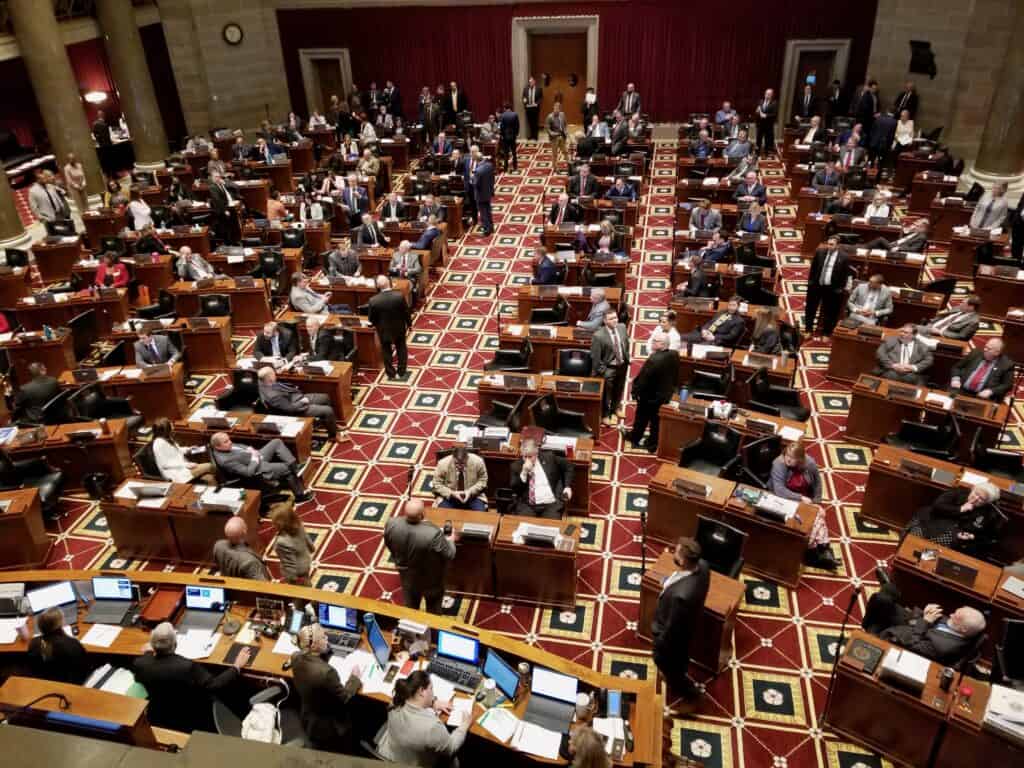Organizations that represent retirees are cheering passage of a bill to phase out state taxes on Social Security benefits.
“We are tickled and delighted that the House and the Senate both agreed to eliminate in a prudent way, over a three-year period, the tax on Social Security income,” Gaylene Miller, state director of AARP West Virginia, said from the Capitol Rotunda on the final night of the regular legislative session.
Gov. Jim Justice had called for elimination of the tax on Social Security benefits weeks ago in his State of the State address. The estimated financial effect of fully eliminating income taxes on Social Security benefits would be a little more than $37 million.
“I believe that there will be a bill signing in our future,” Miller said.
The phase-out would mean a 35%t cut retroactive to Jan. 1, 2024; 65% in 2025 and 100% in 2026.
“We would love to see full elimination, but we’ll get that in three years,” Miller said.
The legislation would build on a 2019 bill signed into law by the governor to exempt Social Security income from personal income taxes for most West Virginians, particularly those in lower tax brackets. That was also a three-year phase-out.
The Senate earlier in the legislative session tied elimination of the Social Security taxes on economic triggers, but backed off that format on Day 60 of the legislative session.
“That money was earned by each of those workers.”
Dale Lee, president of the West Virginia Education Association, said retired educators will benefit from the tax cut on Social Security benefits. He said many of those retirees have gone significant periods without a cost of living allowance.
“Any increase in their income or any tax break for them is very much needed, and this 35 percent reduction in Social Security taxes the first year, 65 percent the second year and completely gone the third year is something we’ve been pushing for our retirees, and it is a good measure for them,” Lee said from the Capitol Rotunda.
Lee also praised passage of a pay raise for educators. House Bill 4883 provides for average 5 percent pay increases for state workers whose pay scales are in state code. So, State Police personnel and public school educators would be affected.
Teachers would receive a $2,460 annual pay increase. And school service personnel would receive an additional $140 a month.
At one point, that pay raise bill also had been tied in the Senate to an economic trigger. The trigger was removed on final passage.
“That should send a message to educators that the games are over,” Lee said.
Governor Justice has promised the pay raise for months, saying it would offset increasing costs for insurance as well as other increased expenses.
“The $2,460 will more than offset that,” Lee said, “and people will actually see an increase in their paycheck this next year.”

